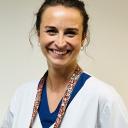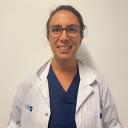We're hiring ! Join us and make a difference in our hospitals
Gynaecology - Obstetrics
Contact
Our role
Obstetrics is the medical speciality concerned with (high) risk pregnancies and complex deliveries. Gynaecology is the medico-surgical speciality that is concerned with all matters relating to the health of women, throughout their lives.




Certain pre-existing illnesses in the mother or that arise during pregnancy can have repercussions for the delivery or the health of the mother and/or her baby. These pregnancies therefore require increased medical surveillance. Obstetrics is also the art of dealing with potentially more troublesome deliveries: large babies, multiple births (twins, triplets, etc.), breech presentation, etc.
Our specialities
The Erasmus Hospital Obstetrics Clinic is structured as follows:
- Prenatal consultations for low or high risk pregnancies take place at the Erasmus Medical Center (EMC). Follow up is by a gynaecologist and/or midwife.
- The Cocoon is a project to prepare for delivery for a low risk pregnancy attended by a midwife with no medical or epidural intervention. Consultations take place at the Cocoon.
- The Early Pregnancy Unit (EPU) is dedicated to urgent consultations for pathologies and bleeding arising during the first three months of the pregnancy.
- The Breech Clinic seeks to encourage and secure vaginal deliveries for babies in the breech position.
- Two technical platforms for labour and deliveries are available at the Erasmus Hospital:
- the "traditional" delivery room,
- the Cocoon, an intrahospital "birth gîte" managed by midwives and for low risk births only.
- The Maternity is the postnatal hospitalisation unit. To ensure maximum rest for the newborn and his or her parents, we recommend that visits take place as soon as the baby returns home.
Nevertheless, we authorize visits as follows, with a maximum of 4 people in the room at any one time:
- Co-parent of the newborn (or resource person in the absence of the co-parent): H27j/7
- Newborn's family (siblings, grandparents, uncles/aunts): 5 p.m. to 7 p.m. 7 days a week
Please note that additional charges will apply to co-parents staying overnight in shared rooms. - The Maternal Intensive Care unit is reserved for high risk pregnancies (antenatal and/or postnatal hospitalisation).
- Specific and multidisciplinary care pathways are provided for pregnant women with:
- gestational diabetes,
- sickle cell disease,
- cardiac disease,
- obesity and/or having undergone bariatric surgery,
- cancer.
- Obstetrician gynaecologists at the Erasmus Hospital participate in the NATUS programme. Multidisciplinary in its approach, this seeks to screen for and support vulnerable parenthoods, from the pregnancy project through to birth and beyond.
Ultrasounds are performed during pregnancy at the Gynaecology, Obstetrics and Foetal Medicine Ultrasound Clinic. This multidisciplinary and transversal technical platform also serves the Gynaecology Department and Fertility Clinic.
The Gynaecology Clinic of the H.U.B. Interhospital Department of Gynaecology and Obstetrics is organised around several sectors of activity:
- General gynaecology proposes medical treatment (contraception, hormone replacement therapy, etc.) and surgical treatment (polyps, fibroma, etc.) from adolescence to the menopause. This sector of activity also includes the Early Pregnancy Unit that is dedicated to urgent consultations for pathologies of 1st quarter pregnancies.
- The Endometriosis Clinic proposes a specific and multidisciplinary care pathway, including specialist gynaecologists, the Medical Imaging Department, the Pain Centre, dedicated consultations in sexology and psychology and complementary medicine (shiatsu).
- The Bleeding Clinic is a pathway of multidisciplinary care for patients showing abnormal bleeding (heavy periods, for example). In addition to a front line gynaecologist, patients can also be seen by a haematologist if necessary.
The H.U.B Department of Gynaecology and Obstetrics includes a Gynaecological Cancer Functional Unit that is concerned specifically with breast and pelvic cancers (cervix, uterus, ovaries), at the Jules Bordet Institute. The unit is also concerned with preserving fertility in the case of certain cancers, the gynaecological consequences of certain cancer treatment (e.g. vaginal dryness), pregnancies before, during and after cancer and medically assisted fertility treatment after cancer.
The Gynaecology Clinic and the Gynaecological Cancer Functional Unit also work closely together with the Fertility Clinic and the Gynaecological, Obstetrical and Foetal Medicine Ultrasound Clinic. It is within this transverse technical platform that the ultrasounds requested for the various indications are carried out.
Before any great adventure, you have to prepare! So to be ready to welcome your baby and for your new life as parents, we propose a series of sessions to prepare you specifically for the new arrival and parenthood. The sessions can be individual or in small groups. They aim to provide you with practical advice, a sense of well-being and also to listen to what you have to say. All in a calm and friendly atmosphere. The sessions are given by midwives and are held several times a week. That leaves you free to choose the moment that is most convenient for you.
We propose a cycle of general preparations for the birth as well as more specific preparation sessions, details of which you will find in our "à la carte” brochure. The “9 months” brochure will guide you step by step through your pregnancy.
Our team

Our specialist doctors









Focus: Obstetrics
The Erasmus Hospital advocates an obstetrics that is the least invasive possible. Testimony to this are the 2022 rates for episiotomies (2.5%), caesareans (15%) and instrument-assisted births (10%), the lowest figures found in the Wallonia-Brussels Federation. Half of all deliveries are without any medical intervention. Respect for the mother-child bond is the central concern, also for caesarean births. Since 2008 the Obstetrics Clinic has been accredited with the "Baby-Friendly Hospital" label.

Focus: Gynaecology
The H.U.B. Gynaecology Clinic and Gynaecological Cancer Functional Unit are centres of expertise for minimally invasive surgery and robotic surgery. The Da Vinci® robot is the favoured solution for operating on gynaecological cancers and deep endometriotic lesions.
Research
The two main lines of research pursued at the Gynaecological Clinic and the Gynaecological Cancer Functional Unit relate to endometriosis and gynaecological cancers (essentially breast and ovaries). A number of clinical studies are being carried out to find new treatments, in an academic context or in cooperation with pharmaceutical companies.

Teaching
Doctors following a gynaecology-obstetrics specialisation have to attend sessions at the ULB simulation laboratory, the SIMLabS. Working on a model connected to a software program, they train in clinical procedures (know-how) bust also in communicating with the patient, the partner and other service providers (know-how).
Publications
Late miscarriage and stillbirth in asymptomatic and symptomatic hospitalised pregnant women in Belgium during the first and second waves of COVID-19: a prospective nationwide population-based study
- Authors: An Vercoutere, Mbiton Joel Zina, Karolien Benoit, Elena Costa, Sara Derisbourg, Michel Boulvain, Kristien Roelens, Griet Vandenberghe, Caroline Daelemans
- Journal: National Library of Medicine, Published online 2023 May 16
